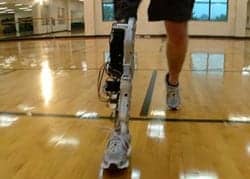
The study, which encompassed 115 children with juvenile arthritis, indicates that changes in the levels of prostandoids in the blood may predict the course of arthritis more accurately, ultimately providing more individualized treatment.
Juvenile idiopathic arthritis can present at any age, with some children diagnosed as early as 6 to 9 months, according to Christina Boros, MBBS, PhD, FRACP, senior lecturer, University of Adelaide’s School of Paediatrics and Reproductive Health, research in the Robinson Institute, head of Rheumatology at the Women’s and Children’s Hospital. Researchers state that the longer the children go without treatment, the more likely permanent joint damage is.
Boros notes that the researchers have been able to determine the link between the blood levels of prostanoids and disease activity in childhood arthritis. “These appear to be more accurate than traditional blood markers of inflammation,” she says.
Boros also states that the researchers are now expanding the study to assess a larger group of children with arthritis and investigate how prostanoids may predict arthritis disease activity over time. The findings could potentially change how childhood arthritis is treated and reduce the physical, emotional, and financial burden of the disease, Boros emphasizes.
Source: University of Adelaide





